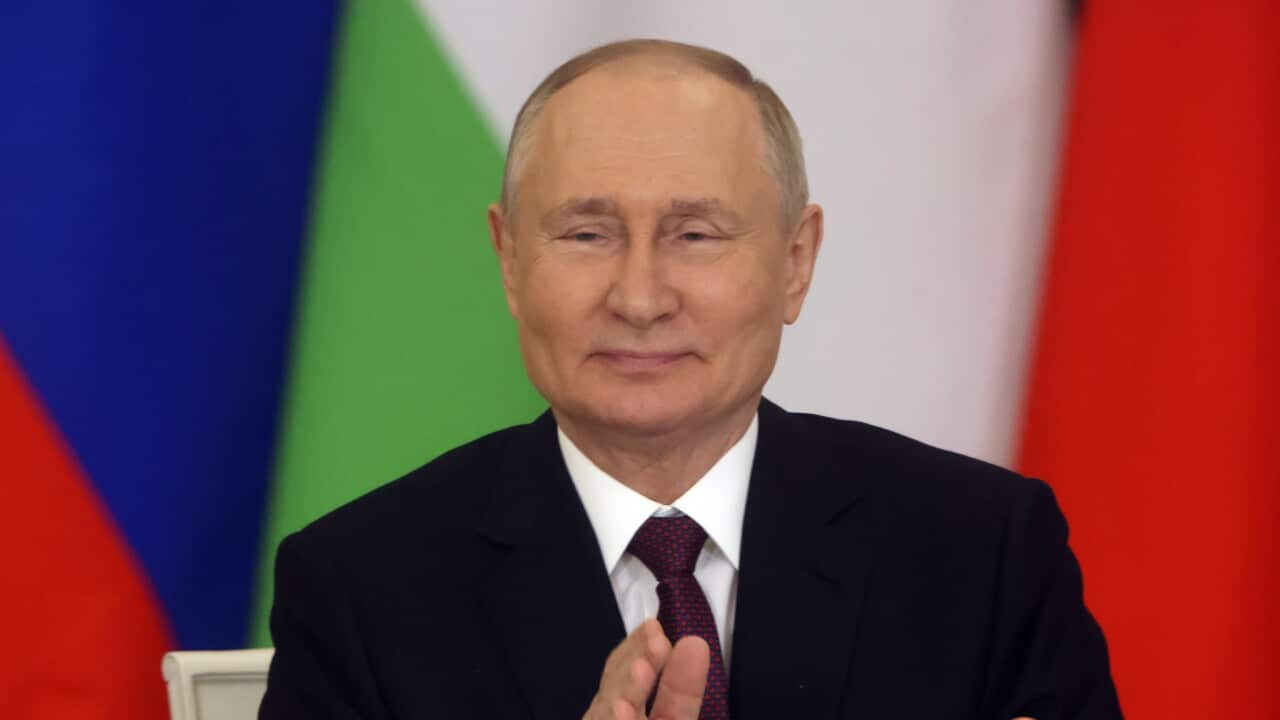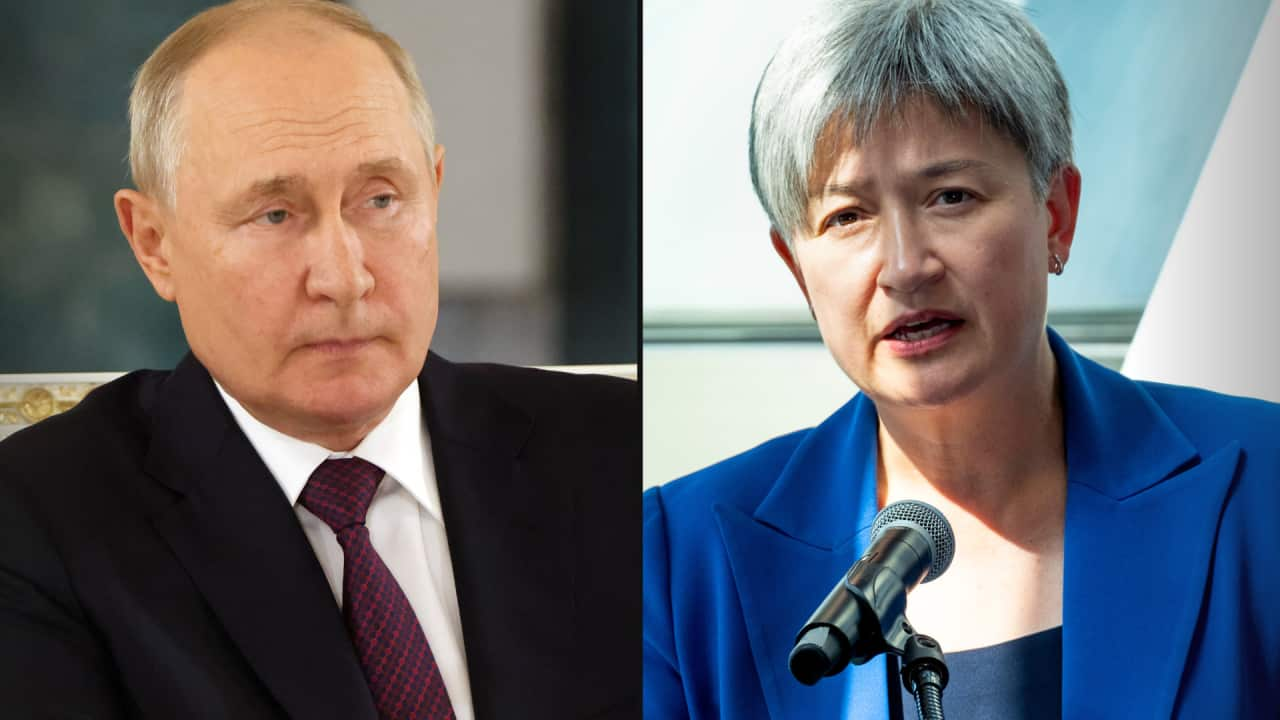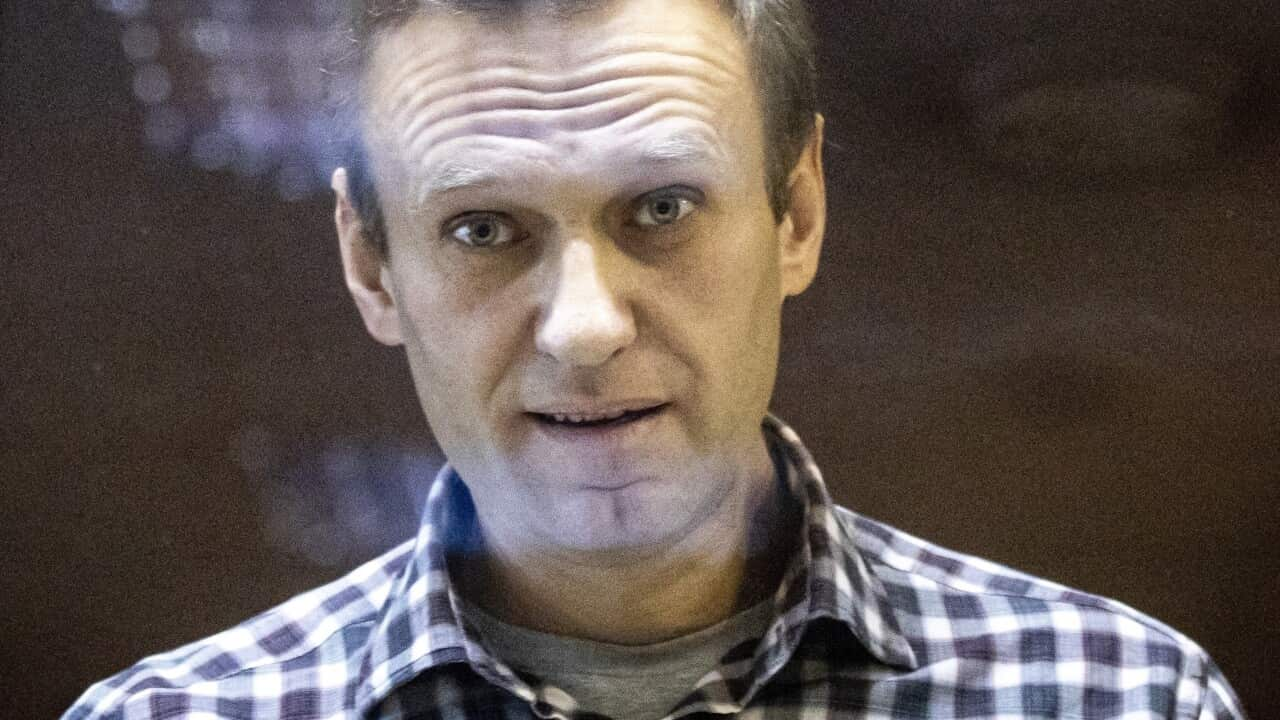Key Points
- On Thursday, Russia's upper house of parliament announced the nation's presidential elections.
- A day later, Vladimir Putin said he would run for a fifth term in office.
- Opinion polls show Putin has approval ratings of 80 per cent, but sociologists warn the results can't be trusted.
Russian President Vladimir Putin, was not even looking at the television camera when he announced that he would aim to stay in the Kremlin for at least another six years as head of the world's biggest nuclear power.
He spoke after election officials set 15-17 March 2024 as dates for the presidential election.
"I will not hide that I have had different thoughts at different times but it is now time to make a decision. I will run for the post of president," Putin said.
Kremlin spokesperson Dmitry Peskov, who has said in recent weeks that he hoped very much Putin would run, said the announcement was spontaneous and denied the scene had been pre-prepared.
"He was asked a question and he answered it. Well, yes, it's completely spontaneous," Peskov said. "He reacted to the appeals of heroic people, so yes, it was a reaction to the appeal of people."
Putin, who was handed the presidency by Boris Yeltsin on the last day of 1999, has already served as president for longer than any other ruler of Russia since Josef Stalin, beating even Leonid Brezhnev's 1964-82 tenure.

Russian President Vladimir Putin, at a meeting with Heroes of Russia in the Kremlin, said that he would run for the position of head of state in the upcoming elections. Source: AAP / Mikhael Klimentyev/Sputnik/Kremlin pool/EPA
'Surprise, surprise'
Pre-prepared or not, it seems that this announcement didn't surprise Russian citizens whose reactions on social media vary from jokes about the "unexpectedness" of Putin's decision to the sentiment of complete despair.
The Russian independent media Meduza with headquarters in Latvia, asked their followers on X (former Twitter) to express their feelings about the announcement.
"Now I have a burning desire to take care of myself as best as possible, to witness the end of all his terms with my own eyes," one user wrote.
"I feel nothing. The news is similar to 'usually there's winter after autumn'" another said.
"If being president for 7 years can drive you insane, then 24 years can drive everyone else insane," was one comment.
"Well... with a work history like that, no one else will hire him", was another.
"Complete despair. Can't even joke about it."

It seems that Putin's announcement didn't surprise Russian citizens. Source: AAP / Ivan Sekretarev/AP
"Putin is human and makes mistakes. But what matters are the intentions and the fact that there are far fewer mistakes than correct decisions," one user wrote.
"Vladimir Putin is an example of the highest moral standards, profound integrity, selfless altruism, and heroic asceticism. Individuals like him are born once in a thousand years, and we are incredibly fortunate to live in the same era as him!"
How much support do Putin's policies have?
Russian official opinion polls show Putin has approval ratings of 80 per cent - higher than before the war in Ukraine.
Sociologists point out that in today's Russia, those who participate in polls often perceive them as a form of communication with the authorities and adjust their answers accordingly.
In an interview with Meduza, Professor Grigori Yudin from the Moscow School of Social and Economic Sciences said "Russia is characterised by very high depoliticisation—people are reluctant to participate in elections or public opinion polls. The majority lacks interest in politics and doesn't have strong opinions on many issues."
Since the early 2000s, Russia has three major public opinion research centres. Two of them primarily receive major orders from government authorities, allowing the state to significantly influence the topics of their research and decide whether the results should be published.
The third one, Levada Center, is financially independent from the central government, and in September, the Russian Ministry of Justice has declared Levada a foreign agent, further restricting its activities.
Alexei Navalny speaks out on election
Considered Putin's main opponent, Alexei Navalny, on fraud and other charges that he says were trumped up to silence him, a few days ago called on Russians to participate in the presidential elections and vote against Putin.
"We urge everyone: don't be afraid. Our fear deprives us of our country and future. Year after year, already for 24 years. Those who fear putting up a poster in their apartment block for the sake of freedom, sharing a link with a friend, or making a couple of phone calls should consider why they need freedom at all," his team posted the message on Navalny's Telegram channel.
Navalny's supporters placed campaign banners in Russian cities that resembled New Year's greetings, but the QR code on the banners redirected to a website urging not only to vote against Putin but also to actively persuade others to do the same.
Authorities quickly caught on; most banners were removed, and the website was blocked.
Ukraine's reaction to Putin's plans
Kyiv residents said they were not surprised by Vladimir Putin’s announcement that he would run for another presidential term but were concerned that his possible re-election would mean no quick end to the war.
"I think he will rule till his death. He is that kind of an animal which loves power. He will keep his seat until he dies. No one will be able to kick him out. Here is what I think, " Yurii, 69-year-old Jyiv resident told Reuters.
"It will have negative consequences. I think that as long as he keeps his position and if he is re-elected, the war will not be over any time soon. However, I have big faith in the Ukrainian Armed Forces. But for now, it is what it is," commented to Reuters Victoria, 47-year-old Kherson resident.
Oksana, a 50-year-old displaced person from Mariupol, said: "I think that if people in Russia vote for Putin, it probably means that nothing good is left there."
Additional reporting by Reuters and AAP.




